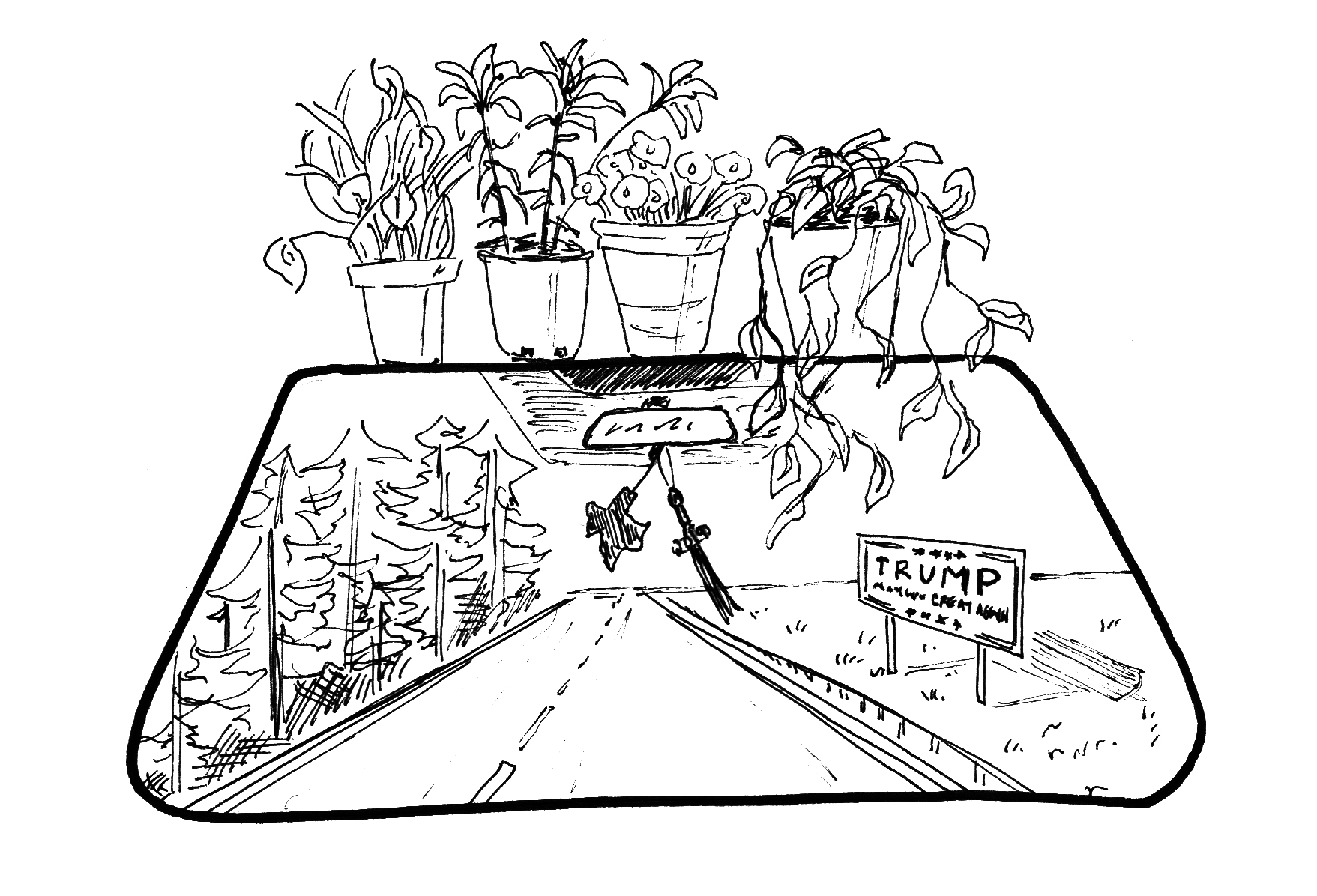Towards highways ahead and homes deferred
May 3, 2019
Last June, we stuffed all of our books and beauty products into Phoebe’s old Volvo and hit the road. From Houston we blasted through Memphis, Nashville, D.C. and then New York, the city, eventually landing in Brunswick. This June, a whole year later, we will drive home to Texas once more. This time we will drive separately, not out of choice but necessity. The image is crystal clear: two hatchbacks with Texas license plates, idling through Pleasant Street, hitting Route 1 and racing down the coast to that star-shaped state we call home. There will be no John Mayer singalongs, no gratuitous rounds of rose-bud-thorn, no unbridled discussions about how out of touch Joe Biden fans are. But more than anything, there will be no next time, no ‘next semester,’ no bud that might bloom at Bowdoin or even in Maine.
As two Texas transplant women leaving Maine for what feels like for good, there is a feeling of rootlessness that permeates drives like these. The road seems to stretch on forever, and though such trips never occur without endpoints, we both know that Texas is not—for the time being—our final destination. There’s a yearning we would guess that many young people, molded by the crucible of America’s elite institutions, feel to constantly move on to the bigger and better and more interesting.
So we’ll live abroad, hoping the thicket of bureaucracies and visas is worth it. When we return, we will undoubtedly succumb to that intense pressure to pick a coast, embrace our 20s in a city that millions of people call home, where the pace of life might outrun our uncertain futures and yet make us feel like life is really moving, pulsing still.
And it will be. America will be on the brink of the 2020 election, and even though every four years the media pitches the stakes as impossibly high, this election is a crucial moment for a nation in transition, a moment from which an emergent American narrative might come into view.
We saw this when we drove through D.C. last summer. Wandering through the newly opened National Museum of African American History and Culture, we took in a portrait of history that resonates in the present day. The hallways were packed with sweaty middle schoolers in Make America Great Again hats and multigenerational families standing witness to a history fraught with violence and injustice. There was also gallery after gallery highlighting the inextricable link between black excellence and the making of America.
But as we witnessed the fallout of an altercation between a tween wearing a MAGA hat and a scolding teacher who told her that “words have power,” we were reminded of the many divergent narratives our nation holds.
We speak a good deal about nationalism and globalization, perhaps as two sides of the same coin. Driving through Trump country last summer—somewhere between Tennessee and West Virginia—we felt the push and pull of these two forces. On one hand, the intense patriotism of the small towns we passed through; on the other, the movement of people across borders, some in search of refuge, others spurred onward by the vast networks of global capital that knit our world together, tighter and tighter still.
When we drive toward D.C. again, we’ll be heading due south. We might choose to let the interstate carry us through Atlanta instead of Nashville, New Orleans instead of Little Rock. No matter which route we take, we’ll land in Texas, that state which in many ways sits at the crux of swelling nationalism and surging globalization: rural and deep red, nestled against the border. Where these currents will take us, as individuals and as Americans, is uncertain, and the landscape they carve is subject to change. We hope we’ll be glad to put down roots there.


Comments
Before submitting a comment, please review our comment policy. Some key points from the policy: